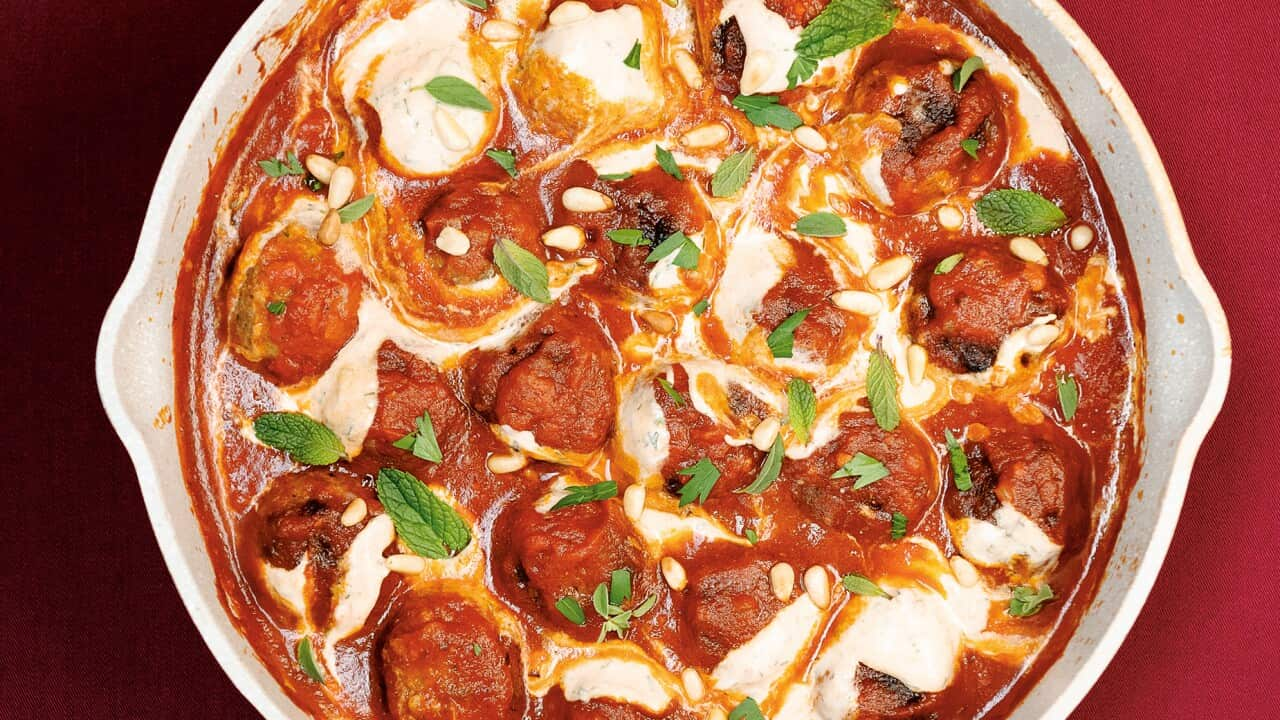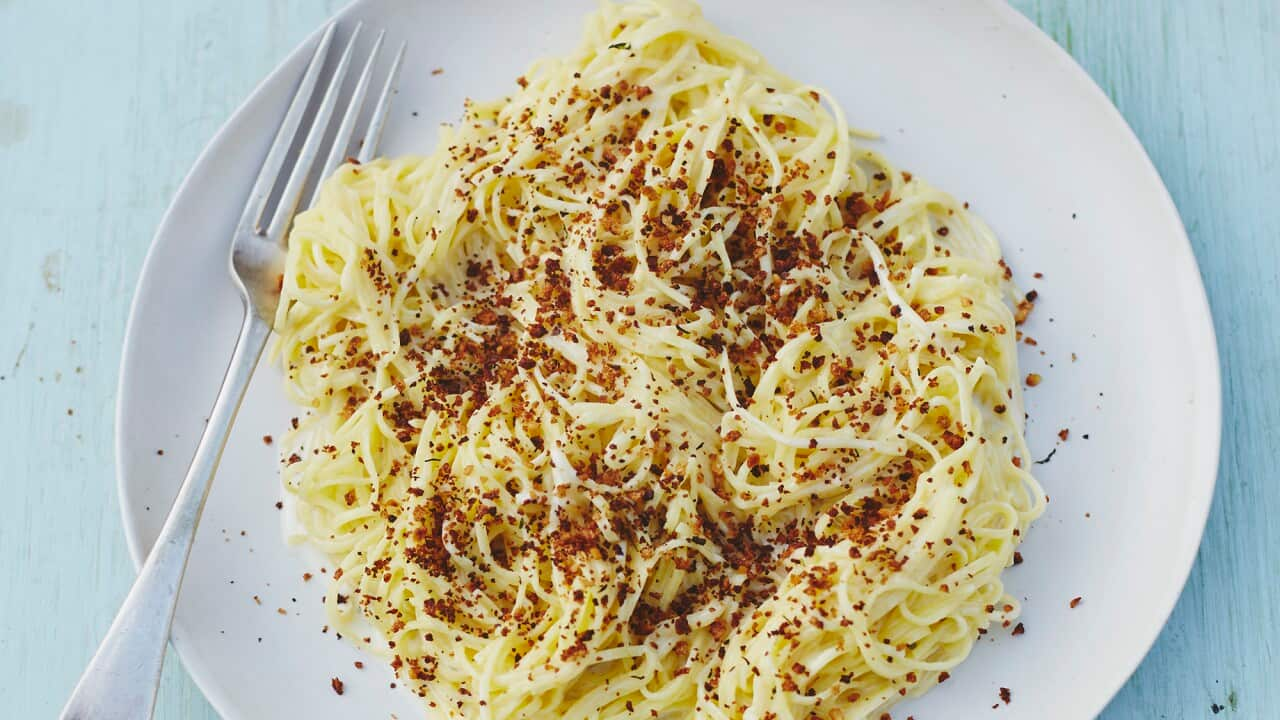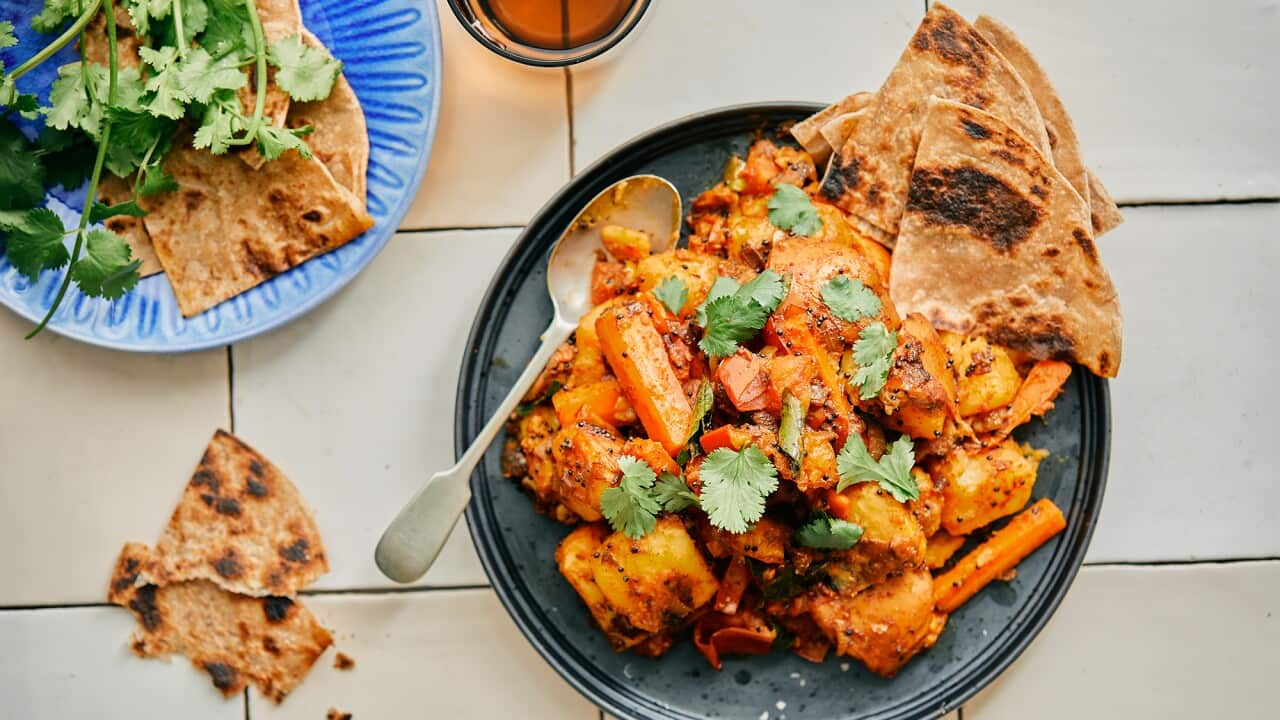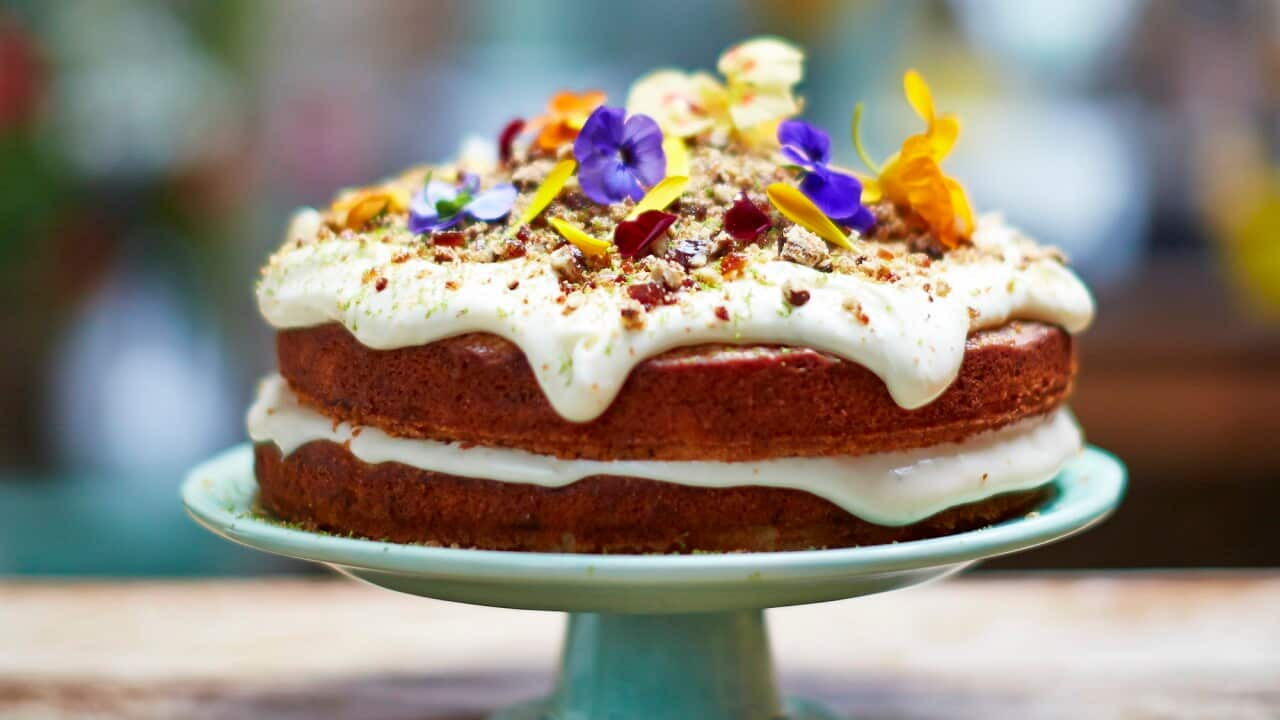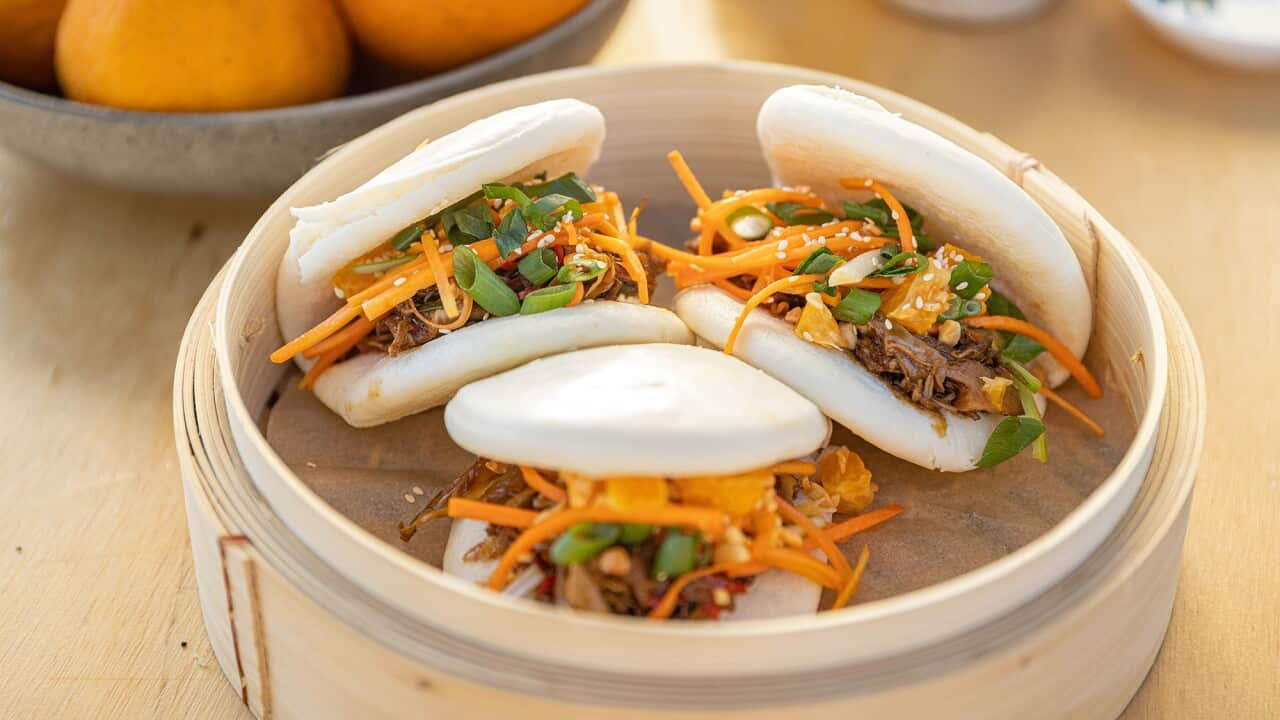serves
5
prep
15 minutes
cook
25 minutes
difficulty
Easy
serves
5
people
preparation
15
minutes
cooking
25
minutes
difficulty
Easy
level
Ingredients
- 1½ tbsp (30 ml) olive oil, divided
- 2 shallots, finely diced, divided
- Kosher salt
- Freshly ground black pepper
- 2 garlic cloves, finely grated
- 2 tsp minced ginger
- 1½ tsp cumin
- 1 tsp ground coriander
- ¼ tsp cinnamon
- ⅓ cup fine breadcrumbs
- ½ cup dry white wine, divided
- 450 g (1 lb) lamb mince (ground lamb)
- ¼ cup pine nuts or finely chopped walnuts, toasted
- 2 tbsp + 1 tsp finely chopped parsley
- 1½ tbsp finely chopped mint, divided
- 4 tbsp finely chopped oregano, divided
- 1 egg
- 1 can (150 ml /5 fl oz) tomato paste
- 1½-2¼ tbsp harissa paste
- ½ cup full-fat plain Greek yoghurt (see Note)
- ½ lemon, zested and juiced
- 100 g (3½ oz) crumbled feta cheese
- 4 cups cooked long-grain rice, for serving
Soaking time: 10 minutes.
Instructions
- Place a large cast-iron skillet or deep sauté pan over medium heat and add 3 teaspoons of the oil. Add half of the shallots, season with salt and pepper, and cook for 3 to 4 minutes until tender and lightly golden brown. Add the garlic, ginger, cumin, coriander and cinnamon, cook for an additional 30 seconds, and then remove the pan from the heat, transfer the shallot mixture to a large bowl, and set aside to cool completely.
- In a small bowl, combine the breadcrumbs with ¼ cup of the white wine and set aside to allow the breadcrumbs to hydrate, about 10 minutes.
- When the shallot mixture is cool, add the lamb and the breadcrumb mixture as well as the pine nuts, 1½ tablespoons of the parsley, 3 teaspoons of the mint, 2 teaspoons of the oregano, and the egg. Season with ¾ tsp of salt and ¼ tsp of pepper.
- Using two forks or your fingers almost like rakes, gently and thoroughly mix everything together. Try not to squeeze the mixture together as you mix, or it will result in tough meatballs. Divide the mixture into roughly 20 walnut-sized mounds and roll into meatballs. If the mixture sticks to your hands, lightly dampen them with tap water before continuing to form the meatballs.
- Turn the heat under the pan to medium-high and add the remaining 3 teaspoons of oil. Sear the meatballs, in batches if needed, until golden brown but not yet fully cooked, flipping once, 1 to 2 minutes per side. Once browned, set them aside.
- Add the remaining shallots to the pan, season with salt and pepper, and cook for 3 to 4 minutes or until lightly caramelised. Stir in the tomato paste and cook for another 2 minutes to intensify the flavour. Deglaze the pan with the remaining ¼ cup of white wine and then stir in the harissa to taste and 1 cup of water.
- Nestle in the meatballs, cover the pan with a tight-fitting lid, and bring to a simmer. Turn the heat down to medium-low and simmer for 10 to 15 minutes or until the meatballs are cooked through to 71°C (160°F).
- Remove the lid and turn off the heat. Spoon a few tablespoons of the hot sauce into the yoghurt (see Note) and whisk to combine. Add the lemon zest and juice, stir in the remaining parsley, mint and oregano (reserving a few leaves of the herbs to garnish, if desired), and swirl into the meatballs.
- Scatter with feta cheese and serve over prepared rice.
Note
If you heat yoghurt too quickly, the protein in it can coagulate, giving your sauce a curdled texture. By tempering the yoghurt with a little bit of the hot sauce, as you would with eggs and hot milk when making custard, you can slowly bring up the temperature of the yoghurt, minimising the chance of curdling. Also, be sure to use full-fat yoghurt, as the fat helps protect the delicate proteins.
Edited extract from In Mary’s Kitchen by Mary Berg. Copyright © 2023 Mary Berg. Photographs by Lauren Vandenbrook. Published by Appetite by Random House®, a division of Penguin Random House Canada Limited. Distributed i. Reproduced by arrangement with the Publisher. All rights reserved.
Cook's Notes
Oven temperatures are for conventional; if using fan-forced (convection), reduce the temperature by 20˚C. | We use Australian tablespoons and cups: 1 teaspoon equals 5 ml; 1 tablespoon equals 20 ml; 1 cup equals 250 ml. | All herbs are fresh (unless specified) and cups are lightly packed. | All vegetables are medium size and peeled, unless specified. | All eggs are 55-60 g, unless specified.

